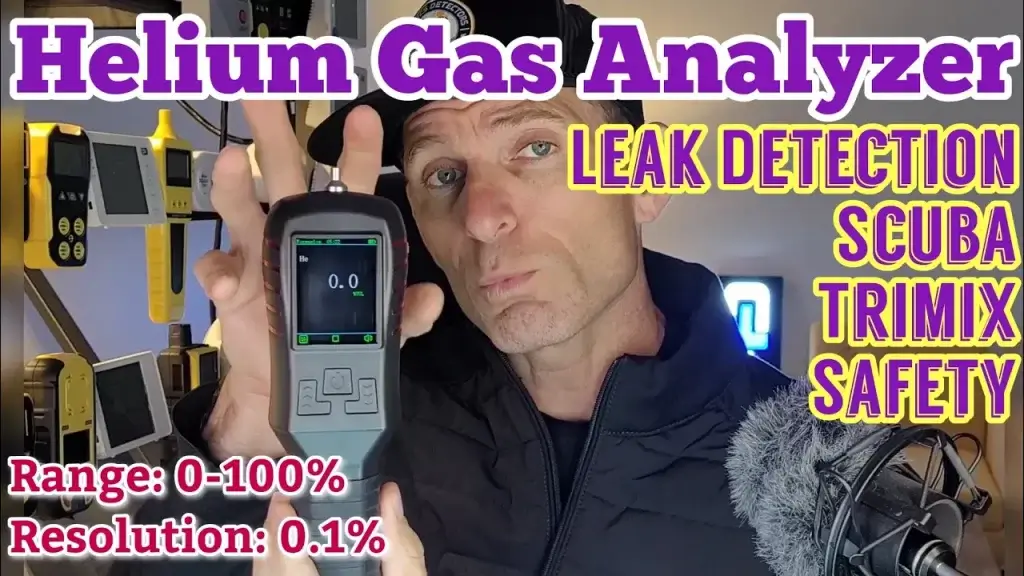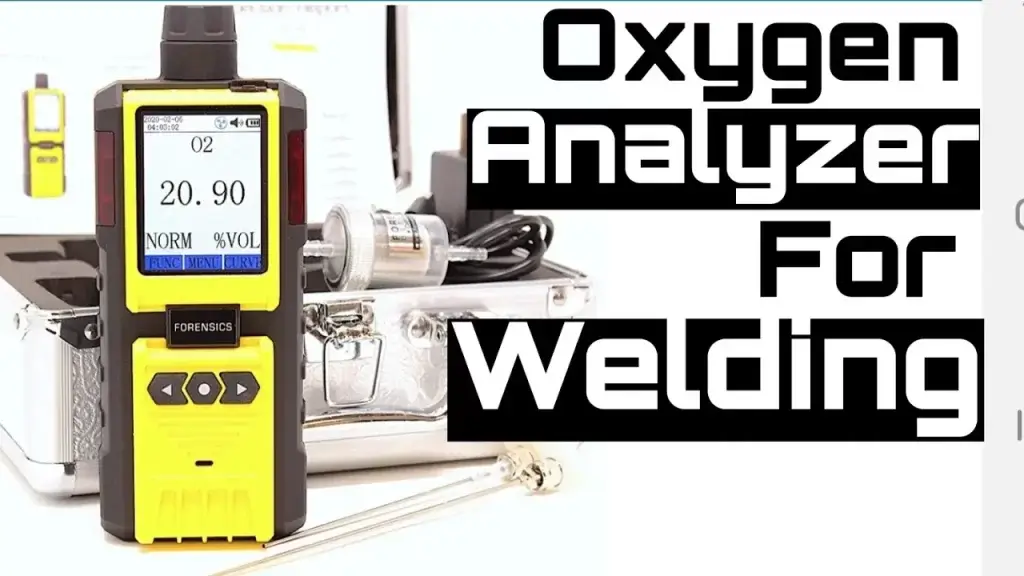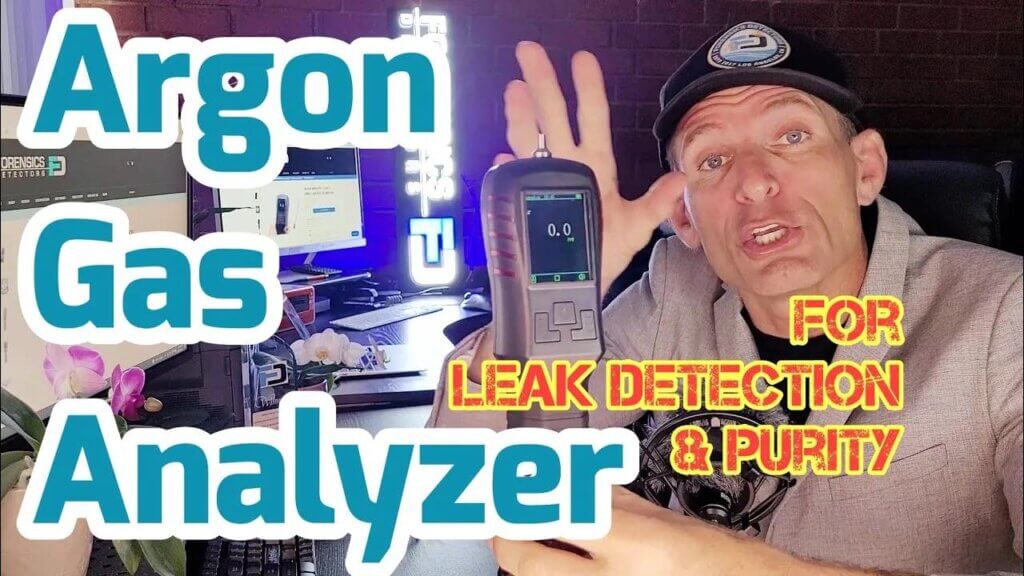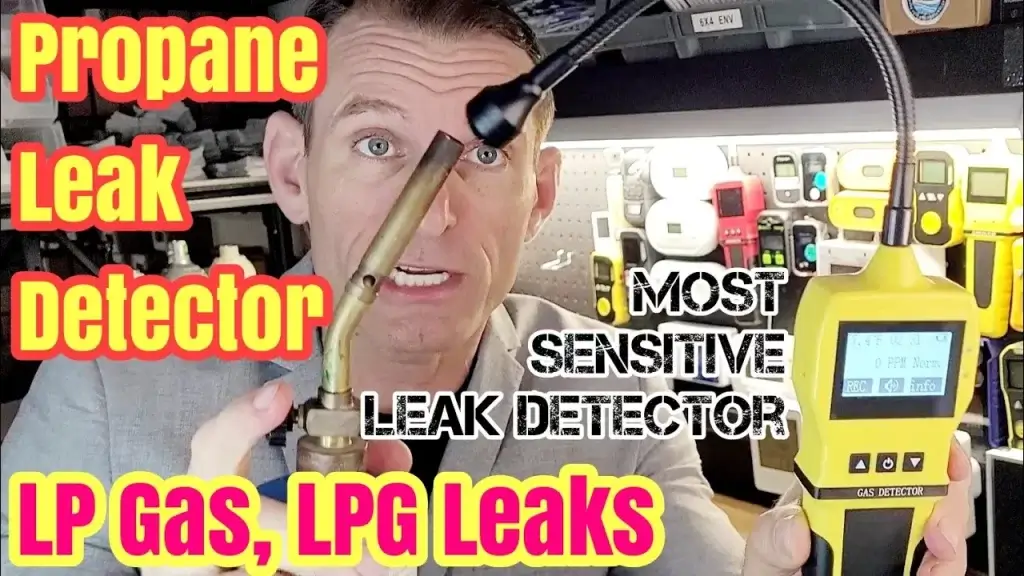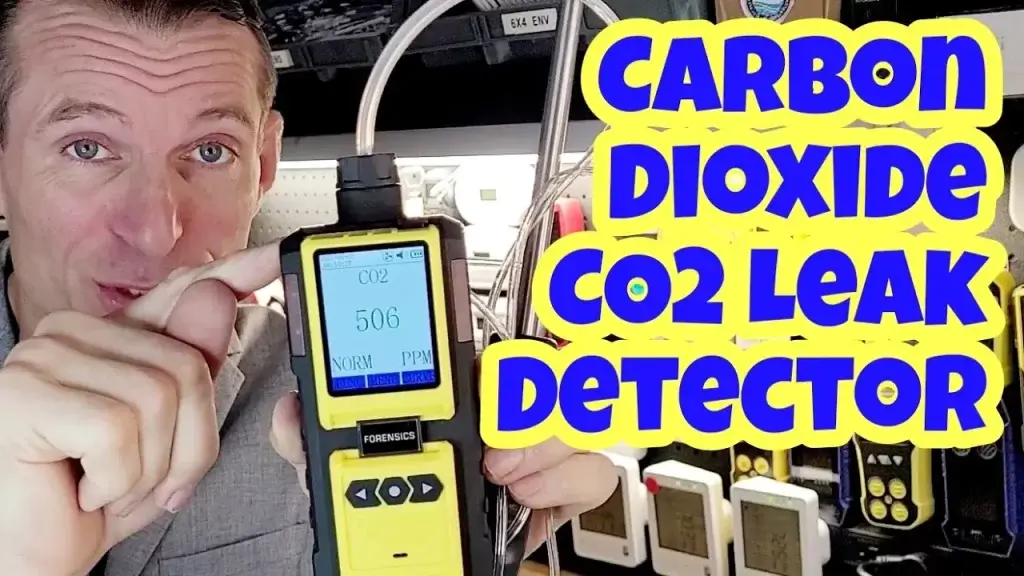Contents
- Types Of Natural Gas Leak Detection Systems
- Point Detectors
- Area Monitors
- Remote Sensing Technologies
- Choosing The Right Natural Gas Leak Detection System
- Factors To Consider
- Comparing Different Systems
- Cost Implications
- Installation And Maintenance Of Natural Gas Leak Detection Systems
- Proper Installation Procedures
- Regular Maintenance Requirements
- Training For Maintenance Personnel
- Benefits And Limitations Of Natural Gas Leak Detection Systems
- Enhanced Safety And Reduced Risks
- Early Detection And Prevention Of Accidents
- Limitations And Potential Challenges
- Frequently Asked Questions Of Natural Gas Leak Detection Systems For Safety
- What Are Natural Gas Leak Detection Systems?
- How Do Natural Gas Leak Detection Systems Work?
- Why Are Natural Gas Leak Detection Systems Important?
- How Can Natural Gas Leak Detection Systems Benefit Residential Areas?
- Conclusion
Natural gas leak detection systems are essential for ensuring safety in various industries. These systems help detect and identify leaks in pipelines, equipment, and facilities, preventing potential accidents and damage.
With their advanced technology and sensors, these systems provide real-time monitoring and alerts, allowing prompt action to be taken for gas leak mitigation. They are designed to detect even small leaks, minimizing the risk of explosion or fire hazards. Implementing such systems not only ensures the safety of personnel and property but also reduces the environmental impact of gas leaks.
Types Of Natural Gas Leak Detection Systems
Natural gas leak detection systems are crucial for ensuring safety. These systems detect and alert individuals to the presence of leaks, preventing potential accidents and hazards. Different types of detection systems, such as fixed, portable, and wireless, offer effective solutions tailored to specific needs.
Natural gas is an essential and widely used energy source in both residential and commercial settings. However, it is crucial to ensure the safety of this valuable resource. That’s where natural gas leak detection systems come into play.
These systems are designed to detect leaks and prevent potential hazards. There are three primary types of natural gas leak detection systems: point detectors, area monitors, and remote sensing technologies. Let’s take a closer look at each of these systems and their unique capabilities.
Point Detectors
Point detectors are the most commonly used natural gas leak detection systems. They are typically installed at specific locations, such as appliances, pipelines, or storage tanks. These detectors work by continuously monitoring the surrounding air for the presence of gas.
When a leak is detected, the system triggers an alarm to alert the occupants of the potential danger. Point detectors are highly sensitive and provide accurate detection, making them an ideal choice for detecting leaks in confined spaces or specific areas.
Area Monitors
Area monitors, also known as open path detectors or gas imaging cameras, have a broader coverage area compared to point detectors. These systems use infrared technology to detect gas leaks over a larger distance. By analyzing the wavelength of the infrared light, area monitors can identify the presence of natural gas and pinpoint the exact location of the leak.
This allows for immediate action to be taken, reducing the risk of a potential explosion or fire. Area monitors are often preferred for outdoor locations, such as pipelines or storage facilities, where leaks can occur over larger distances.
Remote Sensing Technologies
Remote sensing technologies offer another approach to natural gas leak detection. These systems utilize advanced methods such as laser-based spectroscopy or drone-mounted sensors to detect and monitor gas leaks from a remote location. This enables operators to assess potentially hazardous areas without direct physical access.
Remote sensing technologies are particularly effective for monitoring vast areas, such as gas fields or transmission networks, where traditional methods may be impractical or time-consuming. These systems provide real-time data, allowing for prompt intervention and the prevention of potential accidents.
In conclusion, natural gas leak detection systems play a crucial role in ensuring safety and preventing hazards associated with gas leaks. By employing the right type of system, whether it is a point detector, area monitor, or remote sensing technology, the detection and mitigation of natural gas leaks become easier and more efficient.
The implementation of these systems is essential for both residential and industrial applications to protect lives and property from the potential dangers of natural gas leaks.

Choosing The Right Natural Gas Leak Detection System
Natural gas leak detection systems are essential for ensuring safety. By choosing the right system, you can protect your property and loved ones from potential hazards. Invest in an efficient and reliable solution for peace of mind.
Factors To Consider
When it comes to natural gas leak detection systems, choosing the right one is crucial for ensuring safety in both residential and commercial environments. There are several factors to consider before investing in a system that best suits your needs. By evaluating these factors, you can make an informed decision and select a reliable detection system:
- Accuracy: The accuracy of the detection system is of utmost importance in preventing gas leaks. Look for a system that can detect even the smallest gas leaks, allowing for immediate action to be taken.
- Sensitivity: The sensitivity of the system determines its ability to detect gas leaks in various conditions. It is essential to opt for a system that can identify leaks quickly, regardless of factors such as temperature, pressure, or humidity.
- Response Time: The response time of the detection system is another critical factor to consider. A fast response time ensures that any potential gas leak is identified promptly, minimizing the risk of accidents or damage.
- Reliability: A reliable system is essential for accurate and continuous gas leak detection. Look for a system that has a proven track record of reliability and minimal false alarms.
- Integration: Consider the compatibility of the detection system with your existing infrastructure. It should integrate seamlessly with other security systems, allowing for centralized monitoring and control.
- Maintenance: Evaluate the maintenance requirements of different systems. Choose a system that is easy to maintain and offers regular updates to ensure its optimal performance.
Comparing Different Systems
Before making a decision, it is essential to compare the available natural gas leak detection systems. This comparison will help you understand the different features and capabilities of each system, allowing you to choose the best fit for your specific requirements. Consider the following factors when comparing:
- Detection Technology: Understand the technology used by each system. Different technologies, such as infrared (IR) sensors, ultrasonic sensors, or catalytic sensors, may have varying levels of accuracy and sensitivity.
- Scalability: Assess the scalability of the system. If you have a growing facility or plan to expand in the future, it is crucial to choose a system that can accommodate your future needs.
- User Interface: Look for a system with an intuitive user interface that is easy to operate and understand. A user-friendly interface simplifies the monitoring and management of the system.
- Data Logging and Reporting: Consider the system’s data logging and reporting capabilities. A system that logs data and generates comprehensive reports allows for analysis and identification of trends, helping in preventive maintenance.
- Wireless Connectivity: Evaluate if the system offers wireless connectivity, enabling remote monitoring and notifications. This feature provides real-time updates, enhancing the efficiency of gas leak detection.
Cost Implications
Cost is a significant consideration when choosing a natural gas leak detection system. It is important to understand the cost implications associated with the system, both in terms of initial investment and ongoing maintenance. These factors include:
- Installation Cost: Assess the costs involved in installing the detection system. This may include equipment costs, wiring, and any additional infrastructure modifications required.
- Operating Costs: Consider the ongoing operating costs, such as power consumption or maintenance expenses. Opt for a system that offers energy-efficient operation and low maintenance requirements.
- Return on Investment: Evaluate the potential savings and benefits provided by the system. A reliable detection system can help mitigate risks, prevent accidents, and avoid costly damages.
- Longevity: Look for a system that offers longevity and durability. Investing in a high-quality system may require a higher initial investment but can result in long-term cost savings.
Installation And Maintenance Of Natural Gas Leak Detection Systems
Installation and maintenance of natural gas leak detection systems ensure a safe environment by early identification of gas leaks. These systems are designed to detect leaks promptly, minimizing the risk of potential hazards and ensuring the safety of occupants.
Natural gas is a valuable resource that fuels homes and businesses efficiently. However, ensuring the safety of natural gas usage is of utmost importance. Installing and maintaining a reliable and efficient natural gas leak detection system plays a crucial role in preventing potential hazards. In this section, we will discuss the proper installation procedures, regular maintenance requirements, and the importance of training for maintenance personnel.
Proper Installation Procedures
To ensure the effectiveness of a natural gas leak detection system, it is essential to adhere to proper installation procedures. Here are some key steps to follow:
- Begin by conducting a thorough assessment of the area where the system will be installed. Identify potential sources of gas leaks and consider any specific requirements of the location.
- Choose the most suitable detection system for your needs. There are various types available, including fixed-point detectors, infrared sensors, and ultrasonic gas leak detectors. Consult with experts to determine the best option for your specific application.
- Follow the manufacturer’s instructions carefully when installing the system. This may involve mounting the detectors at strategic locations, ensuring proper alignment, and connecting them to a central control panel or monitoring system.
- Test the system after installation to verify its functionality. Conduct a comprehensive test by simulating gas leaks to ensure all detectors are capable of detecting and alarming in a timely manner.
Regular Maintenance Requirements
Regular maintenance of natural gas leak detection systems is crucial to their continued effectiveness. By following these maintenance procedures, you can ensure reliable and accurate detection:
- Perform routine inspections to check the condition of detectors, sensors, and other system components.
- Regularly calibrate the detectors to maintain their accuracy. Calibration should be done according to the manufacturer’s guidelines, typically using a calibration gas specific to the detector type.
- Check for any signs of wear or damage that may affect the performance of the system. Replace any faulty or malfunctioning components promptly.
- Keep a record of maintenance activities, including calibration dates and any repairs or replacements made. This documentation serves as a reference for future inspections and audits.
Training For Maintenance Personnel
Ensuring that the individuals responsible for maintaining natural gas leak detection systems are properly trained is vital. Adequate training enables them to identify potential issues, troubleshoot problems efficiently, and perform maintenance tasks effectively. The following key points should be addressed during training:
- Understanding the different types of natural gas leak detection systems available and their respective features and functionalities.
- Recognizing signs of potential gas leaks and understanding the response protocols to ensure quick and appropriate action.
- Learning how to properly calibrate detectors, perform routine maintenance tasks, and troubleshoot common issues.
- Awareness of safety procedures and protocols to follow when working with natural gas leak detection systems.
Benefits And Limitations Of Natural Gas Leak Detection Systems
Natural gas leak detection systems play a crucial role in ensuring the safety of individuals and the environment. By constantly monitoring gas lines and detecting any potential leaks, these systems provide enhanced safety features that reduce risks and protect against accidents. However, it’s important to be aware of the limitations and potential challenges that come with using these systems.
Enhanced Safety And Reduced Risks
- Continuous monitoring of gas lines ensures maximum safety for both residential and industrial settings.
- By detecting even the smallest gas leaks, these systems can prevent the buildup of hazardous gas concentrations.
- Immediate alerts are sent out to relevant parties, allowing for quick response and evacuation if necessary.
- Early detection helps prevent fires, explosions, and health hazards associated with gas leaks.
- The use of natural gas leak detection systems significantly reduces the risk of property damage and loss.
- Regular monitoring and maintenance of these systems further enhance their performance, ensuring continued safety.
Early Detection And Prevention Of Accidents
- Natural gas leak detection systems quickly identify even minor leaks, minimizing the potential for accidents.
- Immediate detection allows for swift action to be taken, preventing the escalation of leaks into dangerous situations.
- Early intervention ensures timely repairs and reduces the likelihood of major gas-related incidents.
- These systems enable targeted leak detection, helping to locate the source and address the issue efficiently.
- The ability to continuously monitor gas lines offers increased peace of mind, knowing that potential risks are being actively mitigated.
Limitations And Potential Challenges
While natural gas leak detection systems provide invaluable safety benefits, they also come with certain limitations and potential challenges that need to be taken into consideration:
- False alarms can occur, especially in environments where there are other sources of gas or chemicals present.
- Some systems may have difficulty detecting leaks in hard-to-reach or concealed areas, leading to potential undetected leaks.
- Regular maintenance and calibration are necessary to ensure accurate functioning of the detection systems.
- Installation costs and ongoing monitoring expenses can be a financial challenge for individuals and businesses.
- Power outages and system failures may temporarily hinder the operation of natural gas leak detection systems.
Frequently Asked Questions Of Natural Gas Leak Detection Systems For Safety
What Are Natural Gas Leak Detection Systems?
Natural gas leak detection systems are devices that detect the presence of natural gas in the environment. These systems use sensors to identify gas leaks, providing an early warning to prevent accidents and ensure safety in residential, commercial, and industrial settings.
How Do Natural Gas Leak Detection Systems Work?
Natural gas leak detection systems work by utilizing sensors that detect the presence of gas in the air. These sensors can be calibrated to detect specific gases like methane.
When a gas leak is detected, the system triggers an alarm or alerts the appropriate authorities, allowing for prompt action to minimize risks and prevent potential hazards.
Why Are Natural Gas Leak Detection Systems Important?
Natural gas leak detection systems play a crucial role in ensuring safety as natural gas is highly flammable and can lead to serious accidents or explosions if a leak goes unnoticed. These systems provide an early warning to detect leaks promptly, allowing for quick response and prevention of potential disasters.
How Can Natural Gas Leak Detection Systems Benefit Residential Areas?
In residential areas, natural gas leak detection systems are essential for safeguarding homes and residents. They provide an added layer of protection by continuously monitoring for gas leaks, which can originate from appliances, pipelines, or connections.
Early detection of leaks ensures prompt action, preventing potential hazards and protecting the well-being of residents.
Conclusion
Natural gas leak detection systems are essential for ensuring safety in various industries. By detecting leaks early on, these systems can prevent potential disasters and protect both human lives and the environment. With their advanced technology and sensitivity, these systems provide an effective means of monitoring and identifying any gas leaks that may occur.
Investing in such systems is a wise decision to mitigate risks and maintain a safe working environment. Remember, safety should always be the top priority.


